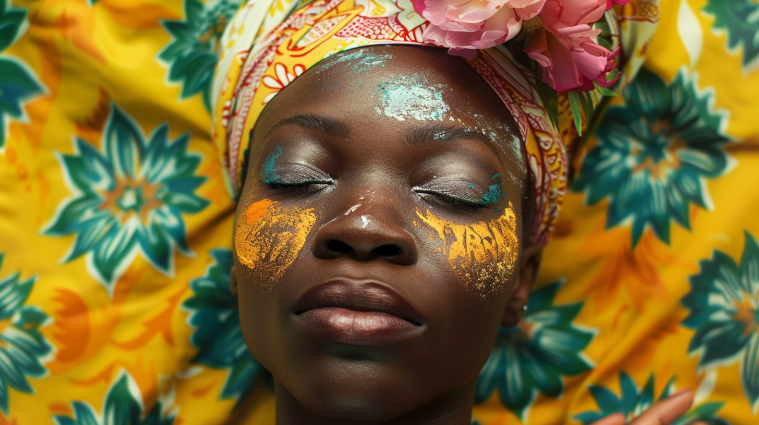African beauty traditions, rooted in a rich tapestry of cultural practices, are much more than mere aesthetic endeavours. These rituals, steeped in ancient wisdom, offer a unique blend of physical, spiritual, and communal benefits, a synergy that modern wellness approaches are only beginning to appreciate. Let’s embark on an explorative journey, traversing the vast landscapes of Africa to unearth these time-honoured secrets.
The Essence of Natural Ingredients
In the heart of Africa, the beauty regimen is deeply intertwined with nature. Ingredients are not just chosen for their effectiveness but also for their natural purity and connection with the earth. Shea butter, a staple in West African communities, is revered for its moisturizing and healing properties. Extracted from the nuts of the Shea tree, it is a panacea for various skin woes, from dry skin to sun protection. Similarly, Argan oil, often referred to as ‘liquid gold’ in Morocco, is renowned for its nourishing and rejuvenating effects on hair and skin.
The Art of Scarification and Tribal Markings
Moving beyond the superficial, African beauty practices embrace the body as a canvas for cultural expression. Scarification, a practice involving intricate cuts on the skin, is not merely a beauty ritual but a rite of passage and a symbol of identity and belonging in many tribes. These markings, though perceived with mixed feelings in the modern context, signify strength, beauty, and a deep connection to one’s heritage.
The Power of Rituals and Community
African beauty rituals are often communal, fostering a sense of unity and shared identity. In Ethiopia, the ‘Hamar Bull Jumping’ ceremony, where women voluntarily participate in elaborate whipping rituals, is a testament to their strength and support for the male initiates. These rituals are not just about physical beauty but a deeper bond that ties the community together.
Holistic Wellness and Spiritual Harmony
In many African cultures, beauty rituals are imbued with spiritual significance. The use of white clay or ‘Calabar chalk’ in Nigerian and Cameroonian communities is not just for skin care. It’s a spiritual act, connecting the user to the earth and ancestral spirits. This holistic approach views beauty not as an isolated physical attribute but as a harmonious balance of body, mind, and spirit.
Modern Adaptations and Global Influence
Today, the global beauty market is increasingly embracing these ancient African practices. Brands are integrating ingredients like baobab oil, marula oil, and African black soap into their products, acknowledging their potent benefits. Beyond ingredients, the holistic and communal aspects of African beauty rituals are inspiring modern wellness trends, promoting a more inclusive and spiritually connected approach to beauty.
In Conclusion
In the tapestry of African beauty rituals, we discover a profound confluence of the natural, the cultural, and the spiritual. These practices, deeply rooted in ancient wisdom, are not mere routines for physical embellishment; they embody a holistic approach to well-being. The utilization of natural elements like Shea butter and Argan oil, far more than just skincare ingredients, reflects a profound respect for and harmony with nature. Rituals such as scarification, while complex in their modern interpretation, speak volumes about identity, belonging, and beauty’s diverse expressions. Moreover, these practices are inherently communal, strengthening social bonds and emphasizing beauty as a shared experience rather than an isolated endeavour. Spiritually, they transcend the physical, linking individuals to their heritage and the earth in a deeper, more meaningful way. As the world gradually integrates these ancient secrets into modern wellness paradigms, we gain not just novel beauty solutions but a richer, more inclusive understanding of wellness that honours both our individuality and our collective heritage. This integration is a testament to the timeless relevance and adaptability of Africa’s beauty wisdom.
References
Chabalala, H., Matsabisa, M., & Gqaleni, N. (2021). African natural medicine: Toward a health preservation theory and systematization model for clinical application: African natural medicine and health preservation theory. Journal of Traditional Chinese Medical Sciences, 8, S32-S43.
Onebunne, J. I. (2021). AFRICAN TRADO-MEDICINE AND ECO-SPIRITUALITY. African Ecological Spirituality: Perspectives in Anthroposophy and Environmentalism a Hybrid of Approaches.


